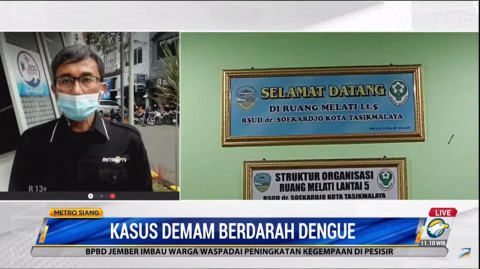Jakarta –
An Israeli journalist, Yoav Limor, has no particular expectations when traveling to Saudi Arabia, a country that has long been notorious for promoting anti-Israel sentiment in textbooks and sermons by several imams. He and his partner had a “pleasant surprise”, he wrote in the Israeli newspaper Hayom. Saudi market traders and taxi drivers mostly greet them with curiosity, not disdain.
“Some smiled and shook their heads in disbelief or worry. Others were curious and started a conversation,” Limor wrote, adding that “nothing made us feel unwelcome.”
US President Joe Biden’s trip to the Middle East, which began on Wednesday (13/07), has sparked speculation of a possible breakthrough in normalizing relations between Israel and Saudi Arabia. However, the Saudi Kingdom has repeatedly stated it will stick to the Arab League’s position not to establish formal relations with Israel until the conflict with the Palestinians is resolved.
ADVERTISEMENT
SCROLL TO RESUME CONTENT
–
The experience of Limor, who qualifies for a tourist visa because he holds a non-Israeli passport, hints at a shift in Saudi public opinion that officials hope to one day lay the groundwork for formal bilateral relations.
“For decades, the Kingdom of Saudi Arabia has been a huge exporter of Jewish hatred,” Deborah Lipstadt, Washington’s special envoy to combat anti-Semitism, said in a speech after visiting Saudi Arabia in June.
“However, what I found was something very different, something that has changed dramatically there in recent years,” he added.
“I don’t like them”
“There is little chance that Riyadh will shift its focus to relations with Israel, while ignoring the Palestinian issue,” said Mohammed Alyahya, a fellow at Harvard University’s Belfer Center.
“Public sentiment has changed, but I don’t think it’s changed in such a way that people no longer care about Palestinians or people don’t hold Israel accountable for the crimes they committed,” Alyahya said.
However, a different view came from Saudi citizens. “It’s impossible for me to go to Israel one day. I don’t like them,” said Abo Rashed, an auto parts seller in Riyadh. He also referred to the Israelis as invaders.
MBS heir to reshaping Saudi Arabia
The son of Saudi King Salman bin Abdulaziz, Mohammed bin Salman, has shaken the monarchy’s reputation after the 2018 murder of journalist Jamal Khashoggi and widespread international condemnation. However, US President Joe Biden’s visit to Saudi Arabia this week is likely to restore his position on the international stage, and force world leaders to deal with him.
Prince Mohammed bin Salman, known for his enormous ambitions, from building the futuristic megacity known as NEOM to waging a seven-year war in neighboring Yemen.
The man who is known as “MBS” is known to like fast food and the video game “Call of Duty”. He is also very rich, owning $500 million yachts to castles in France.
Unlike other Saudi princes who speak with a British accent and dress in suits, and Oxford titles, MBS adheres to the country’s Bedouin roots, accustomed to wearing traditional robes and sandals.
Under his rule, the royal religious police no longer had any authority. Cinemas are re-opened, foreign tourists are free to enter, holding film festivals, opera, Formula 1 Grand Prix, heavyweight boxing, to professional wrestling,
However, he has also jailed critics and carried out a purge of the nation’s elite by detaining and threatening about 200 princes and businessmen at Riyadh’s Ritz-Carlton hotel in a 2017 anti-corruption crackdown.
“MBS is a deeply divisive character, lauded by supporters as the long-awaited game changer,” wrote Ben Hubbard in “MBS: The Rise to Power of Muhammad bin Salman.”
“He is determined to give Saudi Arabia a bright, prosperous future and demonstrates an unwavering will to crush its enemies,” he added.
Prince Mohammed bin Salman has pledged to shape a “moderate” Saudi Arabia and attract international investors for his broad 2030 vision to diversify its oil-dependent economy.
Saudi Arabia’s ambition to become a moderate Islam
“We want to live a normal life,” he told business leaders in Riyadh. “What we are doing is going back to our former selves, a moderate Islam that is open to all religions and open to the world.”
“Seventy percent of the Saudi population is under the age of 30 and to be honest, we will not spend the next 30 years of our lives dealing with extremist ideas. We will destroy them today,” MBS said.
MBS’s most ambitious initiative is the $500 billion NEOM project on the Red Sea coast, powered by solar energy and managed by robots, which the prince describes as a “civilization leap for humanity”.
Reflecting the hopes of the country’s young population, Prince Mohammed bin Salman has relaxed restrictions on women’s rights, allowing them to drive cars, attend sporting events and concerts with men, and obtain passports without having to seek the approval of a male guardian.
Along with MBS’s reforms came a crackdown on dissidents, including intellectuals and women’s rights activists, part of an apparent strategy to stamp out any traces of opposition before King Salman’s official transfer of power.
This shift may be an acknowledgment that Prince Mohammed bin Salman, who is still in his 30s, could rule Saudi Arabia for half a century or more.
ha/as (AFP)
Also read ‘When the Israeli PM meets Sheikh Mohamed bin Zayed, what do you talk about?’:
(it/it)
–


